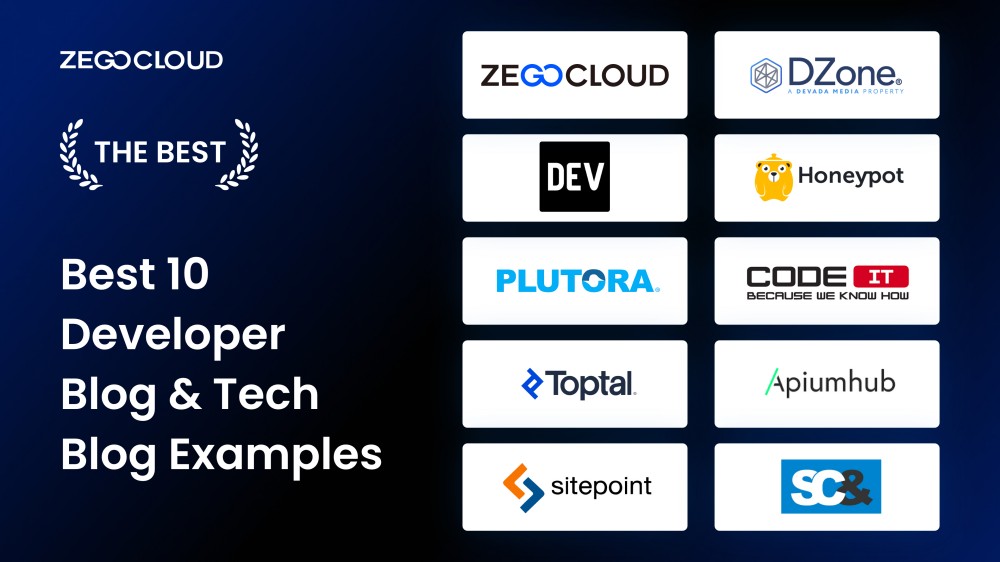Explore Thought-Provoking Articles on the Best tech blog for Tech Lovers
Explore Thought-Provoking Articles on the Best tech blog for Tech Lovers
Blog Article
Exactly How Blockchain Innovation Is Revolutionizing Data Safety And Security
Blockchain technology is fundamentally modifying the landscape of information safety and security by presenting a decentralized structure that guarantees enhanced transparency and durability. Unlike traditional systems, which count on centralized information repositories, blockchain disperses data throughout a network, minimizing susceptabilities and solitary points of failure. Using sophisticated cryptographic strategies makes certain that data stays tamper-proof, cultivating trust among users and stakeholders. As industries rapidly adjust to this technology, questions emerge about its wider impact and possible difficulties. What ramifications does this shift hold for future information defense approaches and regulative structures? The solutions may surprise you (Best tech blog).
The Essentials of Blockchain
Blockchain modern technology, a cutting edge principle in electronic information monitoring, fundamentally transforms just how information is kept and safeguarded. At its core, a blockchain is a distributed journal that tapes deals across a network of computer systems, making sure transparency and immutability. The modern technology operates a chain of blocks, each including a listing of transactions. Once a block is filled up, it is time-stamped and linked to the previous block, developing a chronological chain.
Trick to understanding blockchain is the hashing process, which encrypts purchase information right into a special alphanumeric code. This cryptographic feature ensures that any alteration in the purchase data leads to an entirely different hash, thereby securing versus meddling. The consensus system, one more crucial component, validates and validates new transactions with a network of nodes, thus eliminating the requirement for a central authority.
Furthermore, blockchain's append-only framework guarantees that information, once included, can not be erased or modified. This particular guarantees a proven and permanent document of deals, cultivating trust fund among participants. As an outcome, blockchain gives a durable framework for data honesty, using sectors a trusted technique for monitoring and handling digital details in a protected, clear way.
Decentralization and Protection
Decentralization, a core principle of blockchain innovation, substantially enhances information protection by distributing control throughout a network rather than depending on a single, centralized entity. By distributing information across many nodes, blockchain makes sure that even if one node is endangered, the whole network stays safe.

In addition, decentralization encourages individuals with higher control over their information. Each individual in the network has access to the entire blockchain, enabling them to confirm and examine deals individually. This transparency promotes trust fund amongst individuals, as they do not have to depend on a central authority to ensure information integrity. In general, decentralization contributes in boosting data protection in blockchain networks.

Cryptographic Methods
At the heart of blockchain modern technology, cryptographic techniques play a crucial role in securing data, making certain both discretion and integrity. These techniques are foundational to the blockchain's ability to safely tape-record deals in a decentralized way. Cryptography in blockchain employs a combination of symmetrical and uneven formulas to encrypt data, making it available just to accredited events - Best tech blog. Public and private crucial pairs are main to this procedure, enabling protected verification and identity verification without revealing sensitive info.
Hash features are an additional essential part, transforming input information right into a fixed-size string of characters, properly creating a special digital fingerprint for each and every block. This makes sure that any kind of effort to alter the information will certainly cause a totally different hash, therefore preserving the immutability of the blockchain. Digital trademarks validate the credibility and stability of transactions, providing a layer of non-repudiation.
The decentralized nature of blockchain, integrated with durable cryptographic methods, gets rid of the need for middlemans, minimizing prospective vulnerabilities. As blockchain technology evolves, innovations in cryptography dig this such as zero-knowledge evidence and homomorphic file encryption continue to improve security measures, further fortifying information defense in this cutting edge electronic ledger system.
Use Instances Across Industries

In the medical care industry, blockchain ensures the secure storage space and sharing of individual documents, advertising interoperability while guarding sensitive data from unauthorized access. This modern technology encourages people with control over their case history and facilitates seamless sychronisation amongst doctor.
Supply chain management benefits significantly from blockchain's immutable journal, which makes sure traceability and authenticity of items from origin to consumer. By enhancing openness, blockchain aids mitigate concerns such as counterfeiting and unethical sourcing.
Additionally, blockchain's decentralized nature is improving the energy field by making it possible for peer-to-peer energy trading, where consumers can deal excess renewable resource straight. This promotes a more lasting and effective energy ecological community.
In the realm of copyright, blockchain provides a tamper-proof system for designers to register and safeguard their jobs, ensuring rightful acknowledgment and fair payment. These diverse usage cases highlight blockchain's duty as an essential force in redefining information security throughout industries.
Future of Data Defense
As we want to the future of data defense, blockchain modern technology is poised to play an essential duty in protecting digital details. With its decentralized and unalterable anonymous characteristics, blockchain provides a robust framework for safeguarding sensitive data against unauthorized gain access to and cyber dangers. This innovation makes sure that as soon as data is tape-recorded, it is almost impossible to change without discovery, therefore offering a significant advantage over standard information storage space techniques.
The combination of blockchain with various other advanced innovations, such as fabricated intelligence and the Web of Things (IoT), is expected to enhance information protection approaches further. By leveraging clever contracts, companies can apply and automate security methods, reducing human error and enhancing performance. In addition, blockchain's ability to provide traceable and clear purchases will certainly bolster count on and accountability in information monitoring techniques.
As regulative landscapes evolve, blockchain's compliance-friendly nature will certainly end up being progressively relevant. It can help organizations meet rigorous information defense policies, such as the General Data Defense Law (GDPR) and the California Consumer Personal Privacy Act (CCPA), by supplying proven records of data processing tasks. Inevitably, blockchain's distinct features placement it as a transformative tool in the ongoing pursuit to secure the electronic world against ever-evolving cyber hazards.
Conclusion
Blockchain modern technology represents a paradigm change in data safety and security by leveraging decentralization and cryptographic techniques to boost transparency, trust fund, and data integrity. As cyber hazards develop, blockchain arises as an essential device for durable information protection throughout different industries.
Blockchain innovation is basically modifying the landscape of data safety and security by presenting a decentralized structure that promises improved openness and durability. Unlike typical systems, which count on centralized information repositories, blockchain disperses information throughout a network, decreasing susceptabilities and solitary points of failing.Decentralization, a core concept of blockchain modern technology, substantially enhances data safety by dispersing control across a network rather than depending on a singular, central entity.At the heart of blockchain modern technology, cryptographic techniques play a pivotal function in guarding data, making sure both privacy and honesty.Blockchain innovation stands for a standard shift in data protection by leveraging decentralization and cryptographic techniques to enhance transparency, count on, and information stability.
Report this page